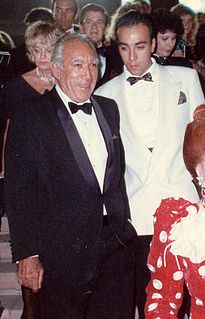A Quote by C. S. Lewis
The story does what no theorem can quite do. It may not be "like real life" in the superficial sense: but it sets before us an image of what reality may well be like at some more central region.
Related Quotes
Before I begin a novel I have a strong sense of at least one central character and how the story begins, and a more vague sense of where things may wind up, but at some point, if the novel is any good at all, the story and characters take on lives of their own and take over the book, and the writer has to be open to that.
I believe that everything has a purpose and that everything a person does will come back to haunt or save him. Life is like a mirror in which everything we do is reflected back to us. We might not be able to recognize the reflection, and at times the image may be hidden. We may take years to see it or it may not even be visible during our lifetime. But it all comes around in the end. Space is as infinite as our actions are timeless. We are all part of the same invisible story, all travelling in a single continuum.
It may be that we exist and cease to exist in alternations, like the minute dots in some forms of toned printing or the succession of pictures on a cinema film. It may be that reality is an illusion of movement in an eternal, static, multidimensional universe. We may be only a story written on the ground of the inconceivable; the pattern on a rug beneath the feet of the incomprehensible.
Guidance, like all God's acts of blessing under the covenant of grace, is a sovereign act. Not merely does God will to guide us in the sense of showing us his way, that we may tread it; he wills also to guide us in the more fundamental sense of ensuring that, whatever happens, whatever mistakes we may make, we shall come safely home. Slippings and strayings there will be, no doubt, but the everlasting arms are beneath us; we shall be caught, rescued, restored. This is God's promise; this is how good he is.
The 'idea' for the poem, which may come as an image thrown against memory, as a sound of words that sets off a traveling of sound and meaning, as a curve of emotion (a form) plotted by certain crises of events or image or sound, or as a title which evokes a sense of inner relations; this is the first 'surfacing' of the poem. Then a period of stillness may follow.
Reality became for me a problem after my experience with LSD. Before, I had believed there was only one reality, the reality of everyday life. Just one true reality and the rest was imagination and was not real. But under the influence of LSD, I entered into realities which were as real and even more real than the one of everyday. And I thought about the nature of reality and I got some deeper insights.
There's only one problem that bothers me. And that's something my theorem [ of Impossibility] really doesn't cover. In my theorem I was assuming people vote sincerely. The trouble with methods where you have three or four classes, I think if people vote sincerely they may well be very satisfactory. The problem is the incentive to misrepresent your vote may be high.
I often think that the ideal of our perfection that we set up, and often go through torture to achieve, may not be God's idea of how He wants us to be at all. That may be something quite different that we never would have thought of, and what seems like a failure to us may really be something bringing us closer to His will for us.
Most of us encounter a great deal more Mystery than we are willing to experience. Sometimes knowing life requires us to suspend disbelief, to recognize that all our hard-won knowledge may only be provisional and the world may be quite different than we believe it to be. This can be very stressful, even frightening. But if we are not willing to wonder, we may have to hang up the phone on life.
You are unique, and there may be incidents in your experience that are more noble and praiseworthy in their way than those recorded in any other life. There may be a flash of illumination here and a story of faithfulness there; you should truthfully record your real self and not what other people may see in you.





































